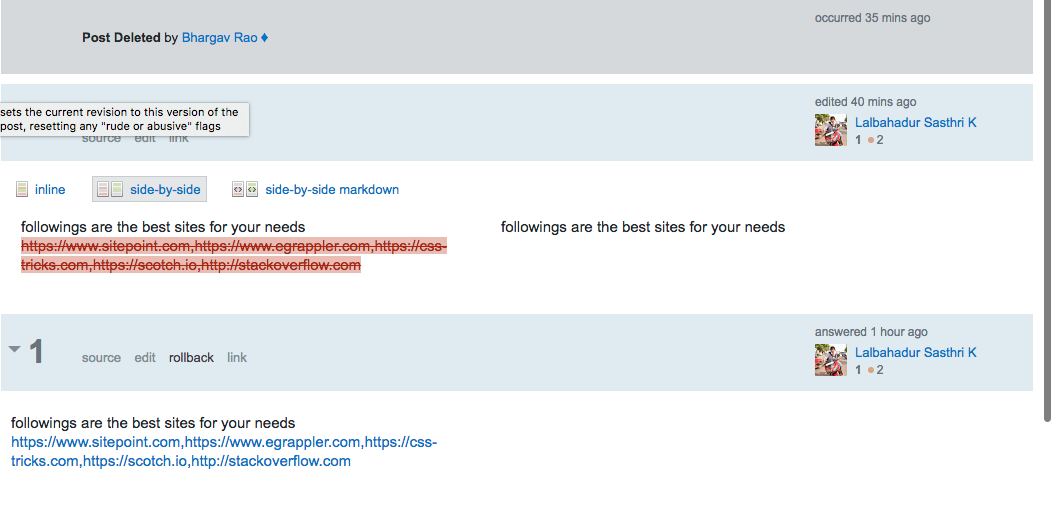I have been reviewing the following answer (already deleted) in low-quality queue and marked it as spam. The original contents of answer aren't available to me, because the user immediately (!) edited them out (so I can't even post a screenshot).
The answer consisted from a handful of broken links to web sites. Those links included both reputable sites (such as CSS-Tricks and Stack Overflow (sic!)) and among other things — links to a couple of suspicious-looking sites about web development I hadn't previously seen.
Personally I consider this an example of extremely vicious clever spam — it even had me manually enter those URLs in the address bar to visit them — a feat, rarely accomplished by "proper" link spam. The answer also looks rather dodgy and was posted by a fresh user account. Based on those facts, I marked the answer as spam, but the flag was quickly disputed by a moderator.
Was I in wrong here?
We all know that indiscriminately posting links to sites is considered spam. IMO, riding on off-topic questions, mixing in some reputable websites and posting broken links should have no impact on that. At the very least, the answer (and its creator) deserve a proper investigation.
EDIT:
I have followed advice by @BhargavRao and had a better look at individual links after being able to seem them again in @SurajRao's answer.
Most are completely innocuous:
- stackoverflow.com (no comment)
- css-tricks.com (a well-established web design resource, probably OK)
- scotch.io — generic article/multiblogging, seems widely-used here
- www.sitepoint.com — same as above
- www.egrappler.com — same as above
The last three belong to the boring "repository of articles" category, which I personally don't like (I wonder if that affected my judgement) and CSS-Tricks is steadily transforming into the same thing by the looks of it.
www.egrappler.com is the sole outlier with only 33 mentions on Stack Overflow (many of which are in poor-quality link-only answers). From the brief look, none of websites have seen substantial suspicious link-related behavior and none look especially spammy.
I guess, this single question already gives those websites more exposure, than any devious spam scheme, so let's consider it solved.
